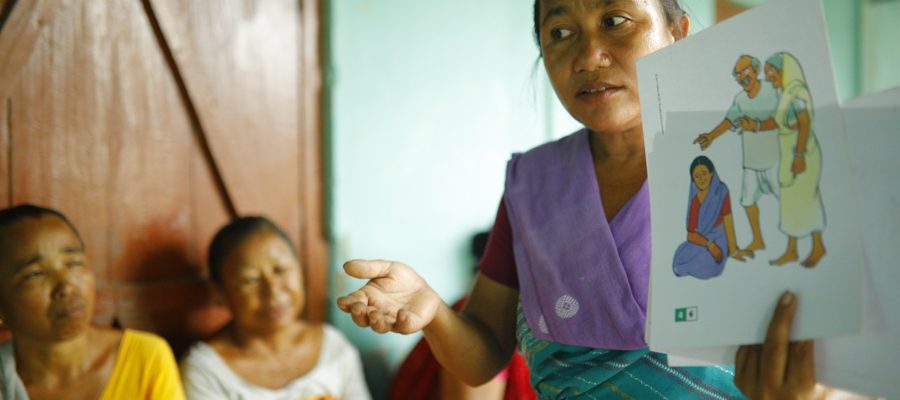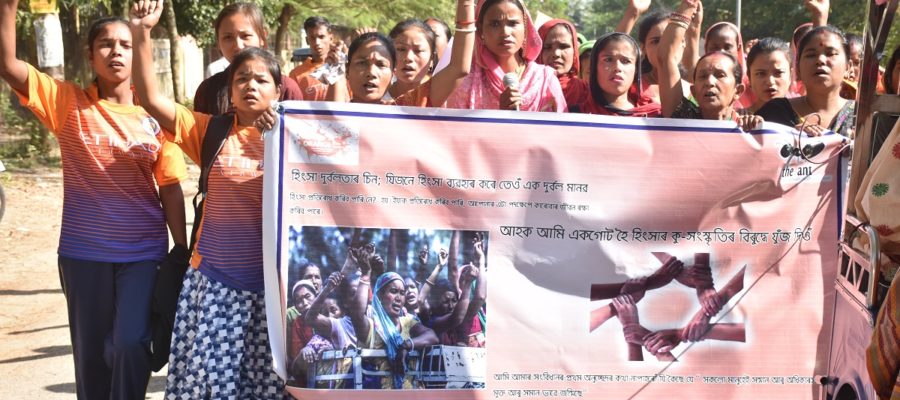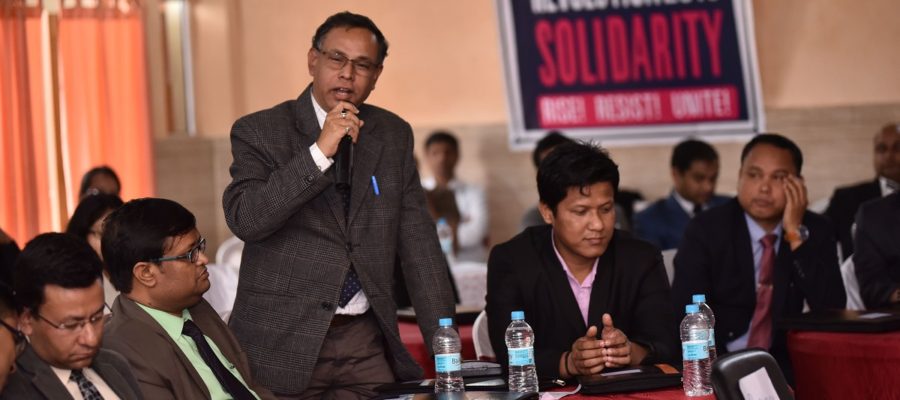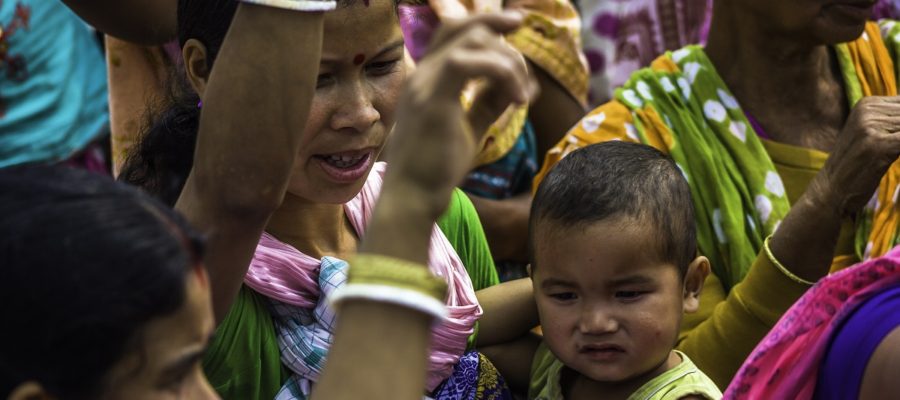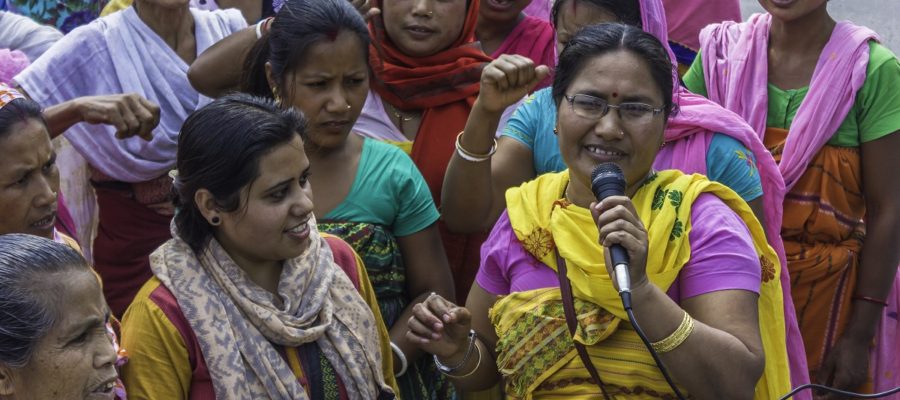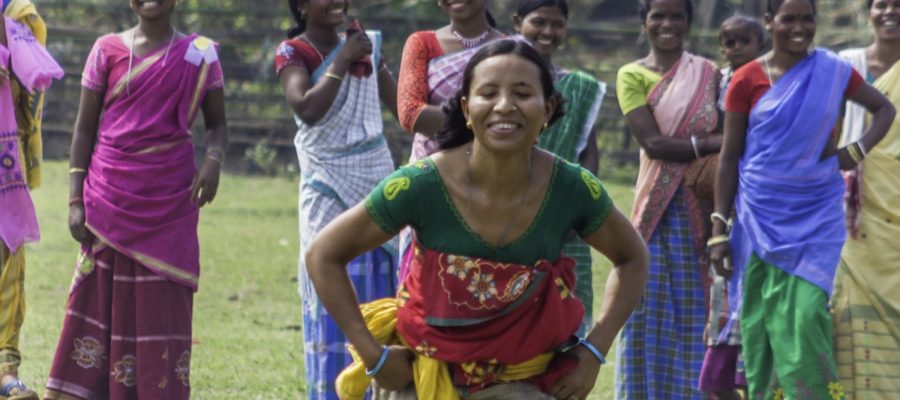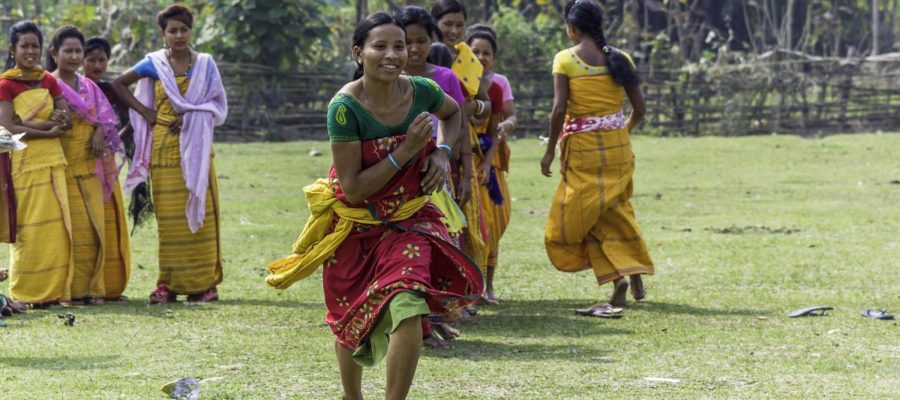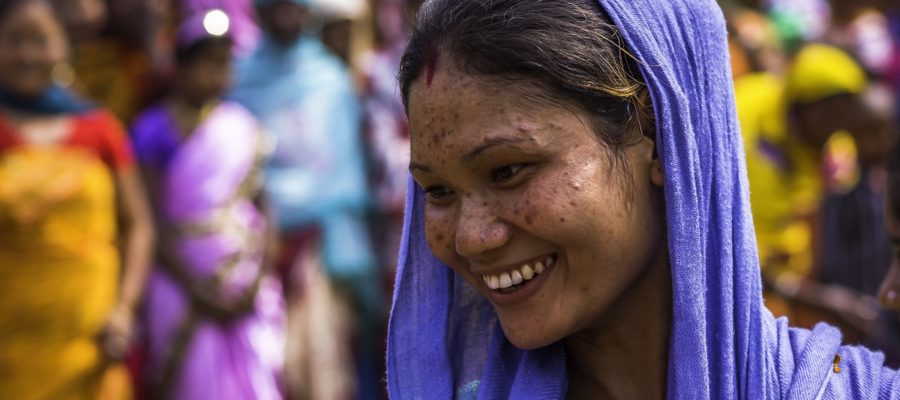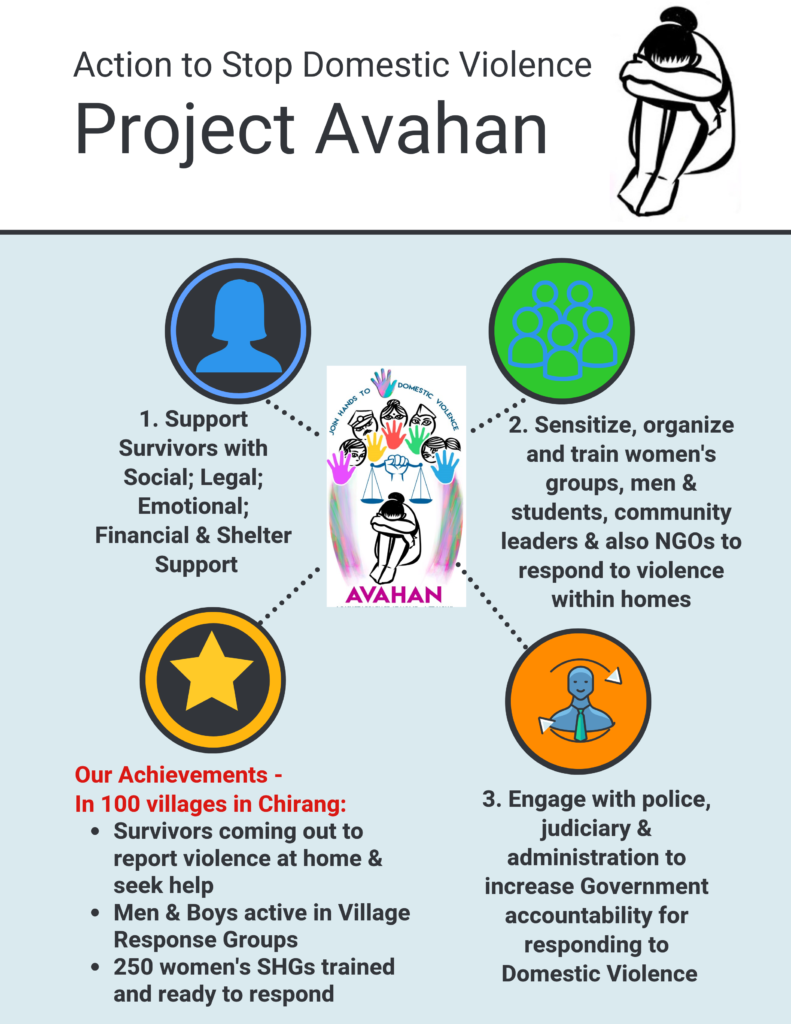Stopping Domestic Violence
Violence Against Women is an age-old way patriarchy has exerted control over women's bodies and lives. Domestic violence, earlier known as wife-beating and now also called intimate partner violence, is one such violence against women where a pattern of coercive behavior is used by one person to gain power and control over another. Over generations socialized by patriarchal norms, values and behaviour, domestic violence has come to be accepted and normalised for most women. 43% of women in our own villages reported being beaten in the past one year.
Project AVAHAN (Against Violence At Home – Act Now!) is an initiative to challenge this notion and to break the culture of silence around violence. It seeks action from the survivor, the community and the State to stop violence which women suffer within homes. Started in May 2017, the pilot phase of the project aims to reduce incidence of domestic violence in 100 villages of Chirang. The project works at 3 levels to bring about change:
- Provide support to survivors of domestic violence.
- Changing the Culture of Violence Against Women:
To get communities empowered to stop DV; build women’s leadership for taking action to stop DV; Sessions with men to sensitise them and build up skills on non-violent means of dealing with stress; forming DV Response Groups; getting village to institutionalise response to DV cases; series of workshops with young boys and girls of high school - to sensitise them regarding gender inequality and violence. - Advocacy with the government for the support and action for stopping DV
Change we are witnessing
Change in patriarchal DNA is slow to come by. But yet, we are slowly but surely seeing some change.
-
- women report cases of physical beating having definitely dropped. In the next phase, we will take it further to stop all kinds of violence at home.
- 24 families are leading a violence free life for the past one and half years of our intervention.
- 12 families have reported violence of no sort for the past of 6-10 month.
- 28 Families shared significant reduction in physical violence but that emotional & verbal abuse persists.
- about 64% of men who attended workshops which we organised to teach them to deal with stress and anger has used the techniques they learnt to do their part in solving familial conflicts in non-violent ways. Further, many of the men thus trained report teaching these techniques of anger and stress management to other men in their villages.
- response groups made up of men, women and youth now play a key role in resolving instances of violence in the villages we work in. 47 cases have been resolved by them through individual counselling, family counselling, village meetings etc.

